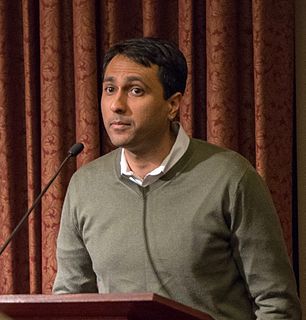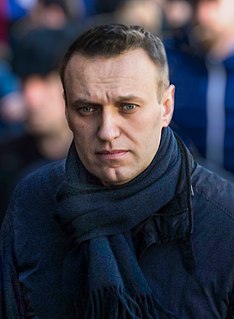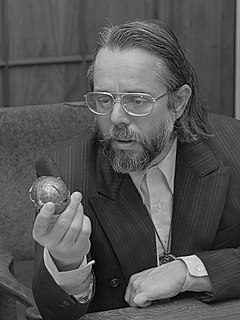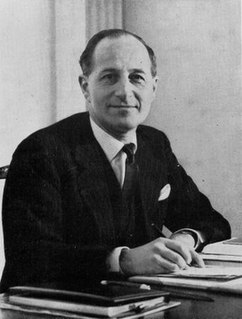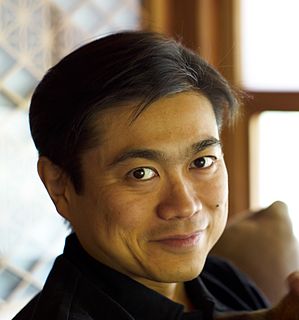A Quote by Eboo Patel
I think that we live in a remarkably networked world. The problem with that, of course, is that tensions can travel in nanoseconds across the Internet, and so the tensions between Shiites and Sunnis in Baghdad, or between Protestants and Catholics in Belfast - those show up in different parts of the world.
Related Quotes
The real differences around the world today are not between Jews and Arabs; Protestants and Catholics; Muslims, Croats, and Serbs. The real differences are between those who embrace peace and those who would destroy it. Between those who look to the future and those who cling to the past. Between those who open their arms and those who are determined to clench their fists.
With the persistence of tensions and conflicts in various parts of the world, the international community must never forget what happened at Hiroshima and Nagasaki, as a warning and in incentive to develop truly effective and peaceful means of settling tensions and disputes. Fifty years after the Second World War, the leaders of nations cannot become complacent but rather should renew their commitment to disarmament and to the banishment of all nuclear weapons.
In a world facing the revolt of ragged and hungry masses of God's children; in a world torn between the tensions of East and West, white and colored, individuals and collectivists; in a world whose cultural and spiritual power lags so far behind her technological capabilities that we live each day on the verge of nuclear co-annihilation; in this world, nonviolence is no longer an option for intellectual analysis, it is an imperative for action
Actions are interesting to watch. I learn about the actors. Their movements are emblems of the tensions in this internal landscape, which their actions resolve. About-to-act is an interesting state to experience, because I am conscious of just those tensions. Acting itself feels fairly dull; it not only resolves, it obliterates those tensions from my consciousness. Acting is only interesting as it leads to new tensions that, irrelevantly, cause me to act again.
Supporters of the national front, Mosaddeq, believe that in Iran, we don't have a nationalities problem, we don't have an ethnic problem. It is like living with your wife, with whom you are in love and you are intensely involved in, but you also have tensions. And their position is that they want to deny that these tensions exist.
It is frightfully hard to explain to Protestants that if you give Roman Catholics a good job and a good house, they will live like Protestants...they will refuse to have 18 children.... If you treat Roman Catholics with due consideration and kindness, they will live like Protestants in spite of the authoritative nature of their Church.
When I was nineteen, pureness was the great issue. Instead of the world being divided up into Catholics and Protestants or Republicans and Democrats or white men and black men or even men and women, I saw the world divided into people who had slept with somebody and people who hadn’t, and this seemed the only really significant difference between one person and another.
Consent of the Networked will become the seminal book firmly establishing the responsibility of those who control the architecture and the politics of the network to the citizens who inhabit our new digital world. Consent of the Networked should be required reading for all of those involved in building our networked future as well as those who live in it.
I used to think that one day I'd be able to resolve the different drives I have in different directions, the tensions between the different people I am. Now I realize that is who I am. I do feel I'm getting closer to the song in my head. I wasn't looking for grace. But luckily grace was looking for me.
